This video is available to everyone for a limited time. Paid subscribers will have access to this and all other videos and bonus content. Please consider upgrading to a paid subscription to enjoy and support this project. If you pay to subscribe I’ll also read your name out at the end of the video.
You can also obtain the benefits of a paid subscription by sharing Three Minute Philosophy with others. For each new friend you bring in, you earn benefits. So spread the word!
For the full archive of videos so far, visit https://www.speterdavis.com/philosophy/
Plato was a Greek philosopher who lived around 400 BC and is regarded to be one of the most accomplished philosophers of all time. Someone much less famous than him once said that the history of western philosophy consists of a series of footnotes to Plato.
That’s a bit of an indictment on western philosophy to say that it peaked in 400 BC but in any case it’s definitely true that Plato was incredibly prolific because back in those days it was actually possible to spend all day thinking about philosophy instead of working a 9 to 5. So he had ideas about just about every field of philosophy from metaphysics, to epistemology, to politics.
Plato had an interesting way of writing down his ideas, rather than laying it all out in one book, Plato basically wrote philosophy fanfiction starring his best friend Socrates as well as a bunch of other philosophers who were around at the time.
This was called Socratic Dialogue, and it usually took the form of a story about some party or event in which a bunch of philosophers got together, got wasted, and argued about something.
Plato himself never showed up as a character in any of his stories, but they did feature many other presocratic philosophers, presenting his own theories through their dialogue. This actually creates a problem for historians of philosophy because Plato’s work was so comparatively prominent that it can sometimes be difficult to tease out what other philosophers thought as opposed to what he thought.
One of the central tenets of Plato's philosophy is what's known as the theory of forms, which he illustrates through the cave analogy. For Plato, the world we live in is similar to living inside a cave, and everything you think you know about the world is actually just the shadows of real people and objects projected onto the wall.
You think those shadows are the whole world, when in fact everything you see around you is just a shadow of the real thing. For Plato, every concept, whether material or abstract, had a true perfect form floating around out there, and while we couldn't see it, we did remember seeing it.
Plato thought that everybody was born with all the knowledge in the universe, and learning is actually remembering. So everything we think we know about, for example, a chair, is actually a half-remembered shadow of the perfect chair which we knew before we were born and just forgot all about it. But we do kind of remember the gist of it.
And this applies to everything, not just chairs and rocks, but even abstract concepts, like love. Plato thought that one of our most important missions in life is to strive toward experiencing the perfect form of love. The so-called “ladder of love” begins with loving a human body, from there you can learn how to love all bodies, then the love of people themselves, then the love of society, then the love of knowledge—philosophy—which is the highest earthly form of love one can achieve short of pure love itself.
Incidentally, this is where we get the term “platonic relationship,” or a relationship that has risen above sex, which is a much less pathetic way of referring to the friend zone.
In fact there’s probably a lot of every day concepts that you didn’t know originated from Plato. For example, the lost city of Atlantis, which, like everything Plato wrote, was a work of fiction. Sorry, conspiracy theorists.
But perhaps his greatest real world achievement was establishing the western world’s first university, called simply, the Academy.
Regardless of his influence, Plato was actually kind of a dick, who didn’t have much faith in humanity, and thought that democracy was a terrible idea. This has a lot to do with the fact that the people of Athens democratically voted to have Plato’s mentor Socrates poisoned to death. Plato likened the idea off democracy to the crew of a ship being able to elect its captain regardless of whether he knew anything about sailing.
Plato thought that society should be ruled by a commune of philosopher kings, and his plan was for all of the smartest and wisest people in Greece to shack up together and have a lot of swingers parties so that, when the kids were born, nobody would know who the real fathers were. Nevertheless, it would be certain that they were bred for their intelligence and genetic purity. This concept is pretty controversial today because it sounds a lot like an idea that some other guy had.
Then again, considering the state of democracy today, some would argue a few tweaks here and there might not be out of the question.
Sources:
Adamson, Peter., Classical Philosophy: A history of philosophy without any gaps. Oxford University Press, 2014
Kraut, R., Plato. Stanford Encyclopedia of Philosophy. 2022, Retrieved 2025.
Macintosh, D., Plato: A Theory of Forms. Philosophy Now. 2012
Shields, J. Navigating the Modern World: Plato’s Ship of State. Antigone. Retrieved 2025/
What you get for subscribing:
Three Minute Philosophy is a fun and educational series of videos and essays about the history of philosophy.
Essays are free. Paid subscribers will gain access to full videos, printable PDFs, and possibly more in time.


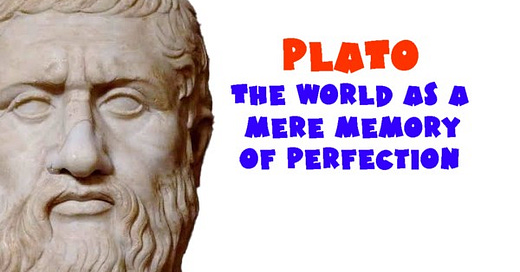



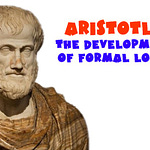

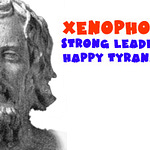
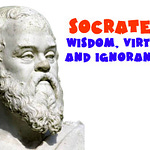
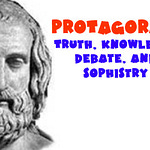
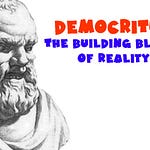
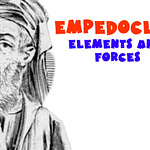
Share this post